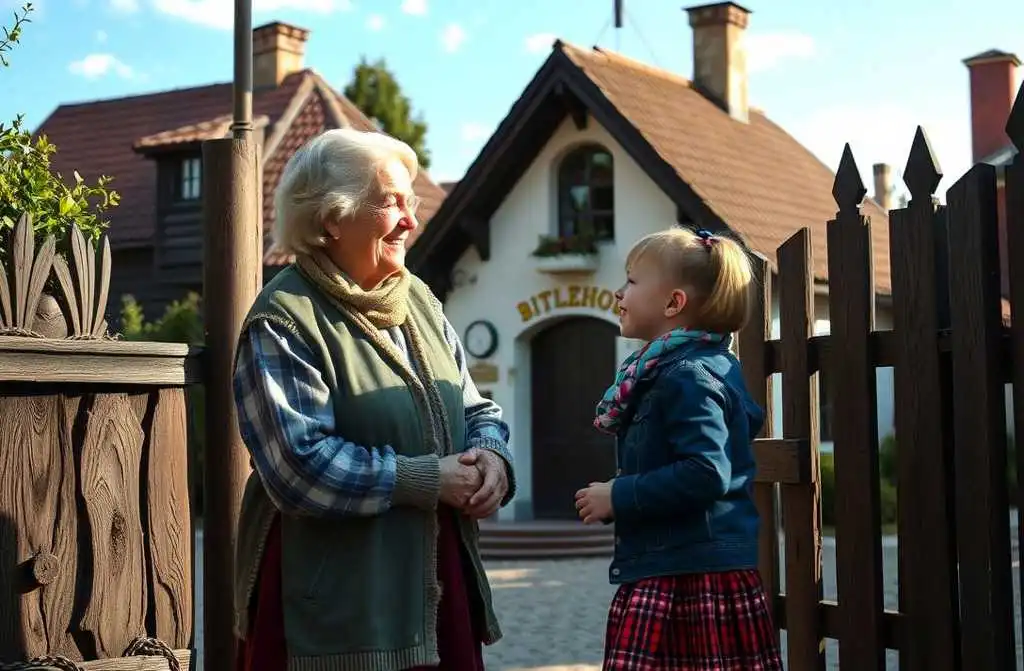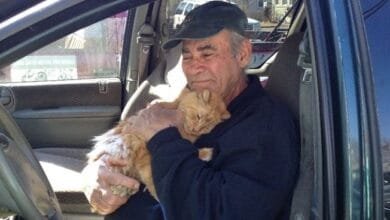“Grandma, Mom said they have to take you to a nursing home.” What I heard from my parents wasn’t a child’s imagination.

Ana Martínez was walking through the streets of a village near Toledo, smiling as she headed to pick up her granddaughter from school. Her face glowed with happiness, and the sound of her heels echoed on the pavement like in her younger days, when life felt like an endless melody. That day was special: after years of saving every cent, she was finally the proud owner of a bright, spacious apartment in a new building. Half of the money came from selling her house in the countryside; the other half was covered by her daughter, Elena—though Ana had promised to pay it back. At seventy, widowed, she lived comfortably on a modest pension, while her daughter and son-in-law still had their lives ahead of them and needed more support.

At the school gate, eight-year-old Lucía, wearing pigtails, ran into her grandmother’s arms. On their way home, they chatted about little things. Lucía was Ana’s light, her most precious treasure. Elena had given birth later in life, nearly at forty, and had asked Ana for help. Without hesitation, Ana left her hometown—where every corner held memories—and moved nearby. She looked after Lucía every day: walked her to school, stayed with her until her parents returned from work, then retreated to her small apartment. The apartment, for “security reasons,” was in Elena’s name. Ana didn’t object. She thought it was just paperwork.
“Grandma…” Lucía looked up at her with wide eyes, “Mom said they have to take you to a nursing home.”
Ana froze, as if a bucket of cold water had been dumped on her.
“What nursing home, sweetheart?” she asked, a chill running down her spine.
“The one where old people live. Mom told Dad you’d be better off there,” Lucía whispered, every word like a hammer to Ana’s chest.
“I don’t want to go! I’d rather go to a spa,” Ana tried to joke, her voice trembling. She couldn’t believe what she was hearing.
“Please don’t tell Mom I told you,” Lucía begged, hugging her tight. “I heard it last night. She said she already talked to a lady, but they’ll take you when I’m a bit older.”
“I won’t say a word,” Ana promised as she opened the door. Her legs were weak. “I have a headache… I’ll lie down for a bit. You go get changed, okay?”
She collapsed onto the couch, heart racing, vision blurry. Lucía’s words had shattered her world. She knew it was true — a child wouldn’t make something like that up.
Three months later, Ana packed her bags and returned to her hometown. Now she rents a small house, saves money in hopes of buying a little place of her own, and leans on old friends and distant cousins for support. But inside, she carries a deep sadness and a hollow ache that never fades.
Some whisper, “She should’ve talked to Elena.” But Ana is sure:
“A child doesn’t lie like that,” she says firmly, staring into the distance. “Elena’s actions speak for themselves. She didn’t even call to ask why I left.”
Ana assumes her daughter understood her decision but chose silence. Ana waits. Waits for a call, an explanation—though she never dials the number herself. Pride and pain keep her from doing so. She doesn’t feel guilty—she gave everything she had. But the silence tears her apart.
And every day, she wonders:
Is this what’s left of love, of sacrifice, of a lifetime?
Is this the fate of old age? To be forgotten.





